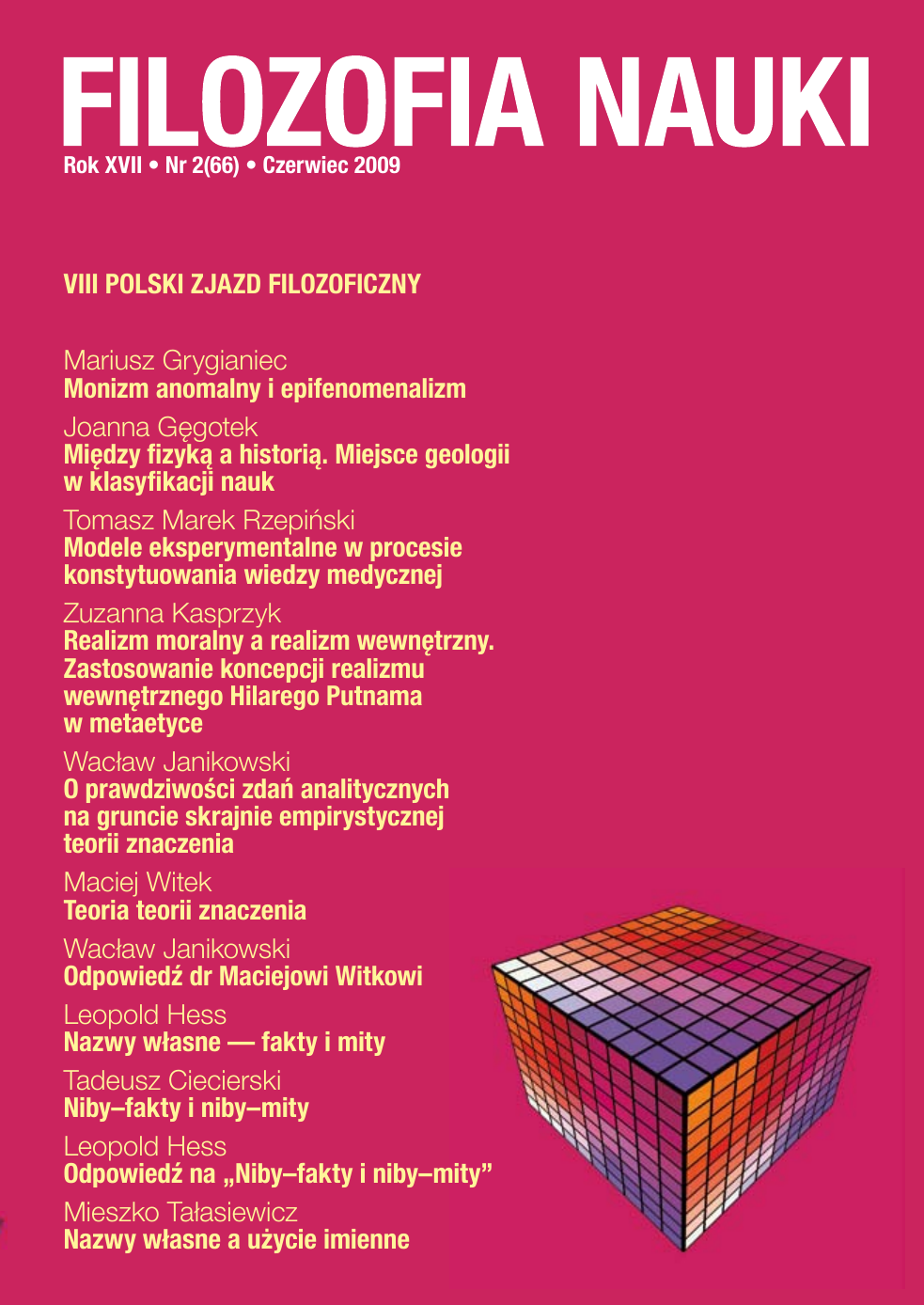Teoria teorii znaczenia
Słowa kluczowe:
semantics, methodology of semantics, metaphysics of meaning, epistemology of meaningAbstrakt
The aim of the paper is to evaluate critically Wacław Janikowski's radically empiricist theory of meaning. In the first section, the author offers a critical analysis of the main theses and definitions proposed by Janikowski. His conclusion is that Janikowski fails to provide a coherent theory of meaning, balancing between functionalism, mentalism and behaviorism. In the second section, the author offers a more general reflection on the actual aim and expected form of a theory of meaning. He claims that in order to construct a comprehensive and adequate account of meaning one should start with the ontological question on the nature of linguistic items, and then ask the epistemological question on the structure of linguistic or communicative competence and end with considerations on the methodology of linguistic studies. In other words, the author rejects the approach tacitly adopted by Janikowski, who starts his theoretical reflection by deriving ontological conclusions on the nature of meaning from the previously accepted methodological principles.Pobrania
Opublikowane
2009-06-01
Jak cytować
Witek, M. (2009). Teoria teorii znaczenia. Filozofia Nauki, 17(2), 99–112. Pobrano z https://www.fn.uw.edu.pl/index.php/fn/article/view/569
Numer
Dział
Polemiki















 Filozofia Nauki | ISSN 1230-6894 | e-ISSN 2657-5868
Filozofia Nauki | ISSN 1230-6894 | e-ISSN 2657-5868